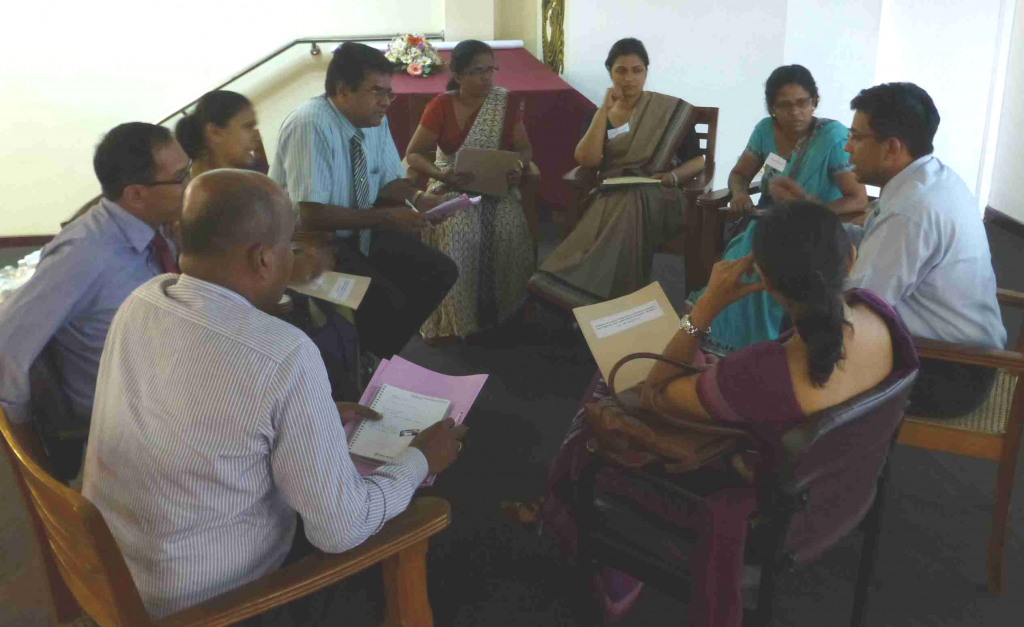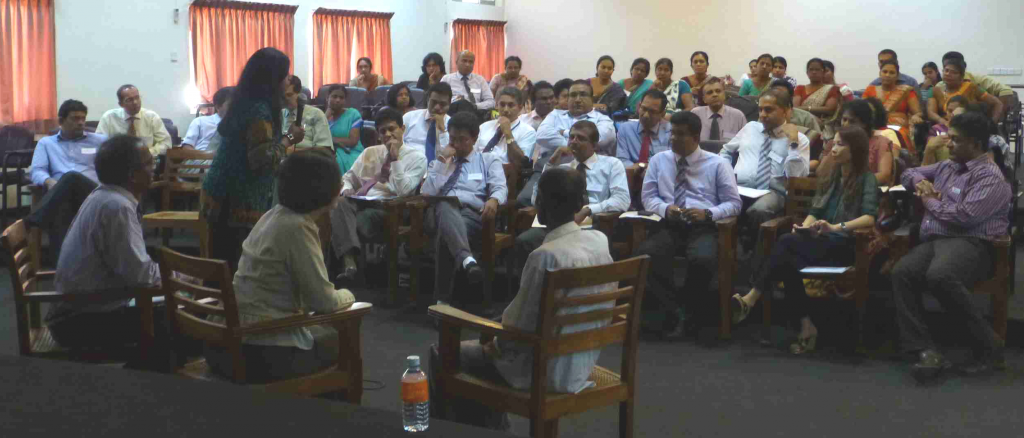“Palliative care is a new field in Sri Lanka which needs attention. While Sri Lanka is a developing country with a free health system, the development of palliative care in Sri Lanka is very slow due to lack of funds and expertise.”
~ Dr.Iresh Jayaweera (MBBS,Certificate in Palliative Care), Secretary, Cancer Care Association- Sri Lanka
The APHN, together with Singapore philanthropic house, the Lien Foundation, partnered Sri Lanka’s National Cancer Institute (NCI) Maharagama and the Sri Lanka Ministry of Health’s National Cancer Control Programme (NCCP) to launch the 1st Module of the Training of Trainers in Palliative Care Course for medical professionals in Sri Lanka on 24 March 2014. Sri Lanka’s Ministry of Health and the National Cancer Institute have made the provision of palliative care a key priority in the country. This is in line with a historic resolution on palliative care.
Palliative care a national priority for Sri Lanka
Sri Lanka’s Ministry of Health and the National Cancer Institute have made the provision of palliative care a key priority in the country. This is in line with a historic resolution on palliative care adopted by the World Health Organisation (WHO) in January 2014. The WHO resolution urges countries to integrate palliative care in their healthcare systems, improve training for healthcare workers, and to ensure relevant medicines are available to patients.
The Lien Collaborative in Sri Lanka aims to help Sri Lanka develop a mainstream health strategy incorporating palliative care. It will scale up palliative care training in the country, and aid the expansion of palliative care services to nine major cancer centres across Sri Lanka.
Urgent need for palliative care
Even though Sri Lanka has a rather advanced healthcare system with free universal healthcare, there are currently insufficient trained professionals and hospices in the country. While an estimated 17% of deaths are caused by cancer in Sri Lanka (WHO, 2008 estimates), the country is categorised as having only “isolated palliative care provision” (Global Atlas of Palliative Care at the End of Life, 2014). Globally, it is estimated that less than 10% of the need for palliative care is currently being met; and while 80% of the global need for palliative care is in low and middle-income countries, most palliative care is provided in high-income countries (The NCD Alliance, January 2014).
Building palliative care expertise in the region
The Lien Collaborative for Palliative Care is a regional initiative co-developed by Lien Foundation and APHN to enhance capacity for palliative care services provision in selected Asian countries with little or no such services. The Collaborative’s mission is to spearhead the development of palliative care capabilities and build up a core interdisciplinary group of clinicians capable of training others and to act as champions for palliative care within those countries. Started in 2013, the four-year S$1.8million programme has launched in Myanmar and Bangladesh. Sri Lanka is the third of four countries to join the Lien Collaborative, on the back of funding from a Sri Lankan donor.

Multi-national medical team of trainers
Taking place from 24 to 28 March 2014, the Lien Collaborative in Sri Lanka involves a multi-disciplinary medical faculty headed by Singapore’s Associate Professor Cynthia Goh and includes three other doctors and two nurses from Singapore and Australia. Three of the doctors have Sri Lankan origins, making this mission a personal voyage for them.
Strong interest from Sri Lanka – largest batch of trainees
The Lien Collaborative for Palliative Care has met with strong interest in Sri Lanka. 50 participants registered to attend the course. This includes 16 consultant oncologists out of 31 oncologists in the whole country (28 in the government sector, three in private practice). Other attendees include one consultant who is an oncology surgeon, 16 consultant physicians from various disciplines, 4 medical officers, 11 nurses and nurse educators, one psychologist and one social worker, coming from the various universities and government hospitals around the country. This is the biggest batch of medical specialists trained by the Lien Collaborative to date.

Related Media Reports:
The New Paper – read article
Tamil Murasu (in Tamil) – read article
Straits Times – read article
